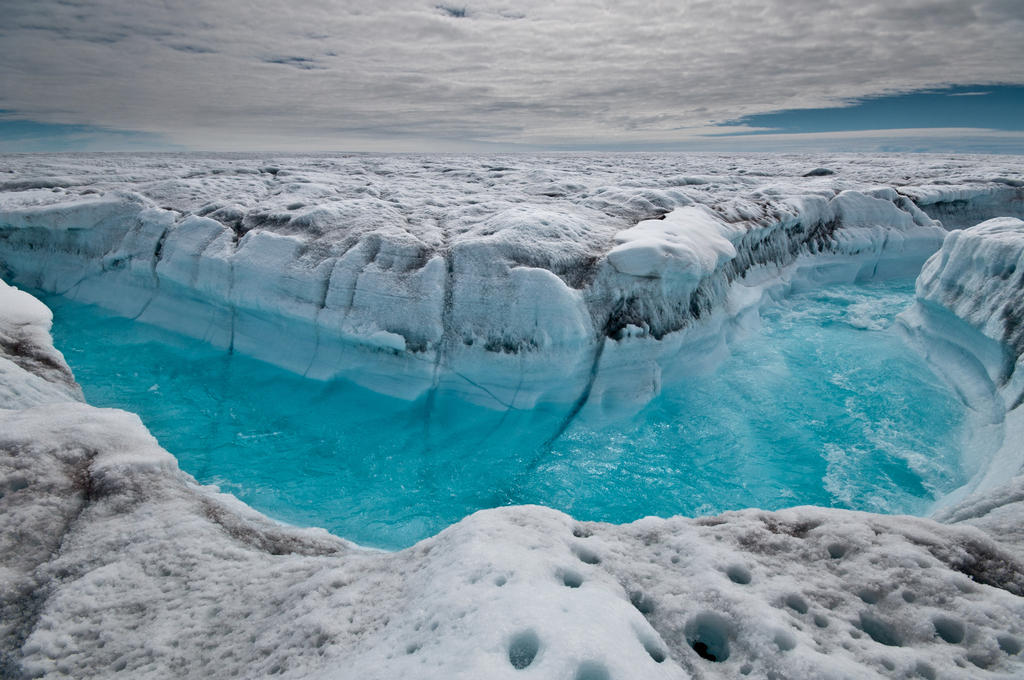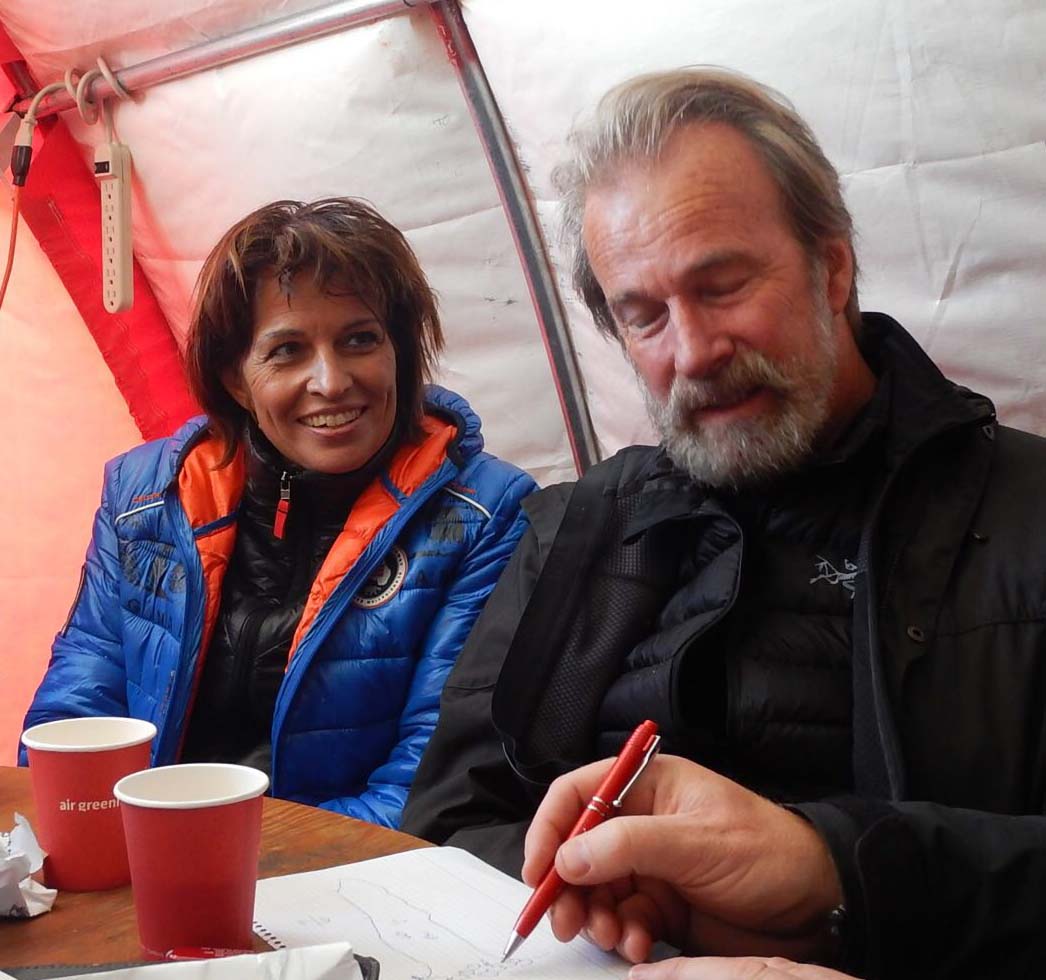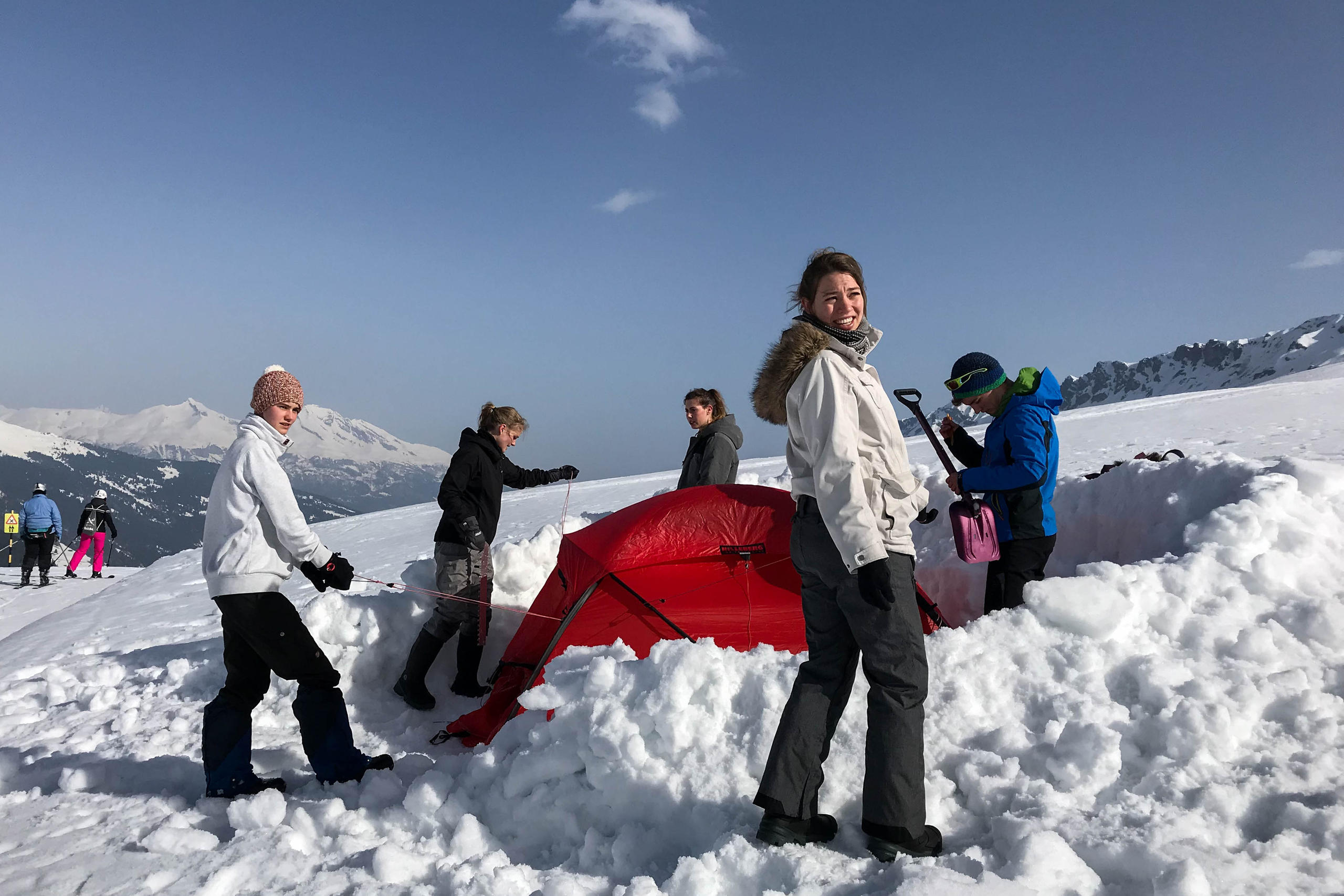Film commemorates ‘Iceman’ Swiss polar researcher Konrad Steffen

In the documentary film The Iceman, director Corina Gamma honours the life of Swiss polar explorer Konrad Steffen.
+ Get the most important news from Switzerland in your inbox
Steffen died in a fatal accident in Greenland in 2020.
“He loved icebergs,” says Corina Gamma. Konrad Steffen (1952-2020) was a Swiss polar and climate researcher, nicknamed the Iceman. With her latest film, director Corina Gamma has created a memorial to his life and work.
In August 2020, the news of the accident involving Swiss climate researcher Konrad “Koni” Steffen shocked the public and the scientific community worldwide. The researcher had failed to return to the Swiss Camp base camp from a routine trip to a measuring station on the Greenland ice sheet. To this day, it is not known exactly what happened.
+ Iceman keeps his cool despite global warming
A search for clues
Gamma set out in search of clues – her film is about his life, about transcience and less about Steffen’s death. The director had known Koni, as she calls him in the documentary, for a long time. He was once one of several protagonists in the documentary film Sila and the Gatekeepers of the Arctic.
In this 2015 film, Gamma attempted to explore the concept of Sila – a multifaceted term in Greenland that encompasses the weather, consciousness and the universe.

More
Melting polar ice ‘directly threatens business profits’
She had been introduced to Konrad Steffen years earlier. “When we talked about Greenland, the ice was broken,” the director, who now lives in Los Angeles, told the Keystone-SDA news agency. She was lucky, she says, because back then Steffen was not yet a superstar in the scene. He was known, but his Swiss Camp had not yet been overrun.
Gamma was able to spend two weeks there, like the former United States Vice President and environmentalist Al Gore before her, who had been there researching a sequel to his film An inconvenient truth.
The footage of Gamma’s stay can be seen in The Iceman. They make the documentary a valuable contemporary document. The director says: “It was easy-going with Koni, who always wanted to share his work with people from outside the scientific community. He was very open.”
An open mind
“I love open landscapes,” says Konrad Steffen at one point in the film. His spirit was also open, as the protagonists in the documentary film attest, especially his two grown-up children and his sister. Director Gamma – and the scientist Steffen – had had the idea of making a film long before his death: about climate change, the eternal ice, but mainly about his life.
Gamma, “like everyone else”, was shocked when she heard about the accident. She asked herself the question: Is this allowed? To make a film about a missing person? Konrad’s surviving relatives gave her the green light, and she felt (albeit not immediately): Yes, that’s what I want to do. And so The Iceman became a kind of sequel to Sila and a tribute to a great explorer.
The film was nominated for the Prix Public at the Solothurn Film Festival last January.

More
Leading Swiss climate researcher dies in Greenland accident
The documentary is about Steffen’s research, the climate and, time and again, the magic of ice. Koni was “made for this place”, the film says several times.
Gamma can understand this fascination. “The ice evokes a similar feeling to when I look out at the sea. Ice is subtle, it’s simple. And yet there are factors in it that you can’t see, but you can feel. I think that was also Koni’s motivation: to explore what you can’t see.”
Reference for Greenland
What remains of Koni? Much more than the glacier that was named after him. More than the Swiss Camp research camp on Greenland, which is formally known as the ETH/CU Camp, and the measuring network that allowed measurements to be taken for highly relevant climate research. “His passion,” said Corina Gamma, “his passion has been passed on to everyone who knows him. It lives on, Koni is still here.”

More
Young Swiss gearing up for Arctic mission
One of his companions says in the film that there aren’t two days when he doesn’t think of Steffen. The director feels the same way: “When someone talks about Greenland, he comes to mind. He was the reference for it, for many people it stays that way.”
“He was where he wanted to be,” says the film. “The fact that he is now buried in the ice has shaken up all of us who knew him a little. He always wanted to draw attention to the disintegration of the ice,” said Gamma. “And that’s what he achieved.” Despite everything, his disappearance into the ice also has a poetic quality to it. “He will probably be carried out to sea on ice one day. Koni loved icebergs. I think that’s beautiful.”
One year after Steffen’s death, the Swiss Camp had to be abandoned as the ice sheet had become too unstable and dangerous for the scientists due to the increasing melt and the growing crevasses.
Translated from German with DeepL/mga
How we work
We select the most relevant news for an international audience and use automatic translation tools such as DeepL to translate them into English. A journalist then briefly reviews the translation for clarity and accuracy before publication. Providing you with automatically translated news gives us the time to write more in-depth articles. The news stories we select have been written and carefully fact-checked by an external editorial team.
Did you find this explanation helpful? Please fill out the short survey on this page to help us understand your needs.

In compliance with the JTI standards
More: SWI swissinfo.ch certified by the Journalism Trust Initiative


















You can find an overview of ongoing debates with our journalists here . Please join us!
If you want to start a conversation about a topic raised in this article or want to report factual errors, email us at english@swissinfo.ch.